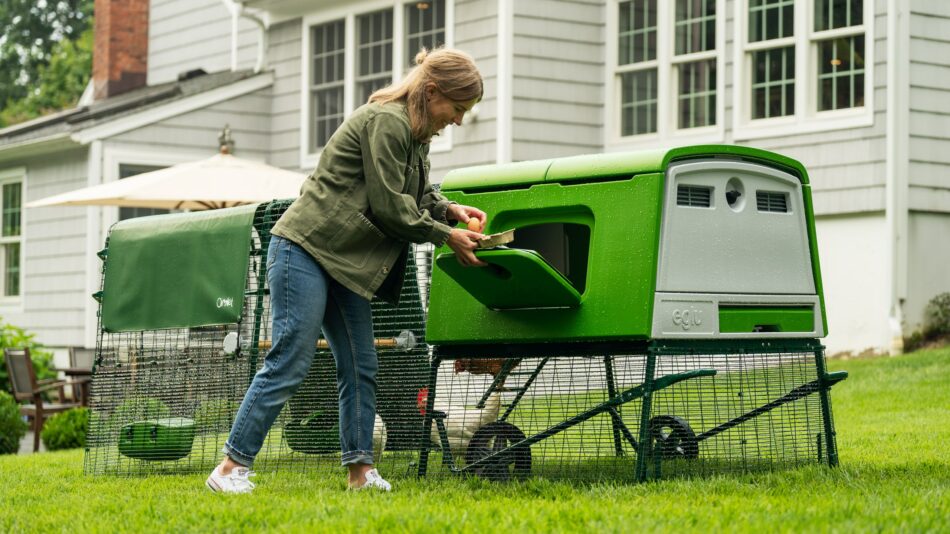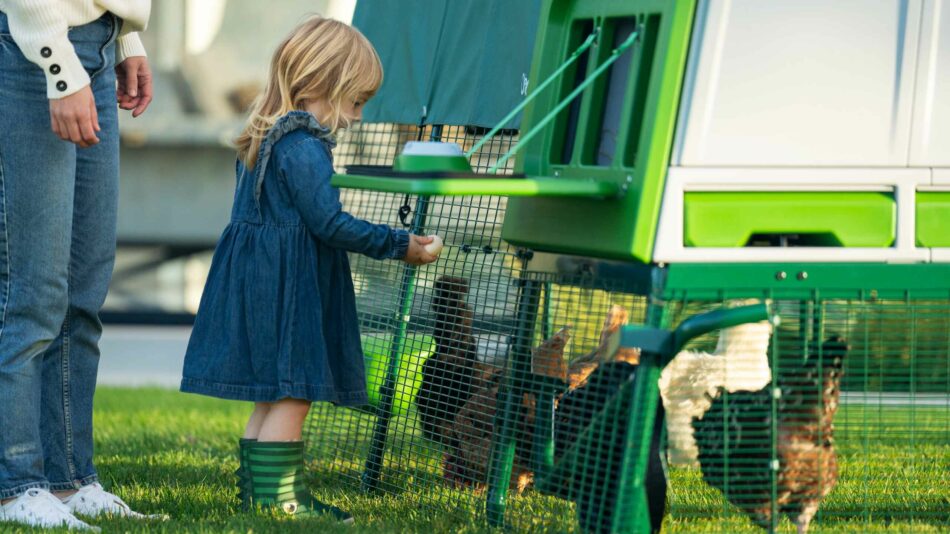Healthy eggs and baking
Looking to incorporate more wholesome foods into your diet? Healthy eggs and baking go hand-in-hand when trying to fortify your family’s food choices. Discover how baking with fresh eggs is the best option for both taste and health benefits, and how to keep your flock up to the task of providing delicious and nutritious eggs.
Are fresh eggs really healthier than shop-bought?
All eggs are nutritious — but not all eggs are created equal. Studies have shown that backyard flocks yield eggs that are higher in essential vitamins and minerals, along with being more rich in colour and consistency. If you crack a shop-bought egg next to a freshly collected egg from your garden, you’ll be able to notice the differences right away. Yolks in fresh eggs are deep yellow or orange in colour, and the white is thicker and more rich.
The reason for these differences largely comes down to the diets of hens. Flocks that are able to free range eat a more diverse diet, and are able to consume a variety of plants and insects that contain healthy vitamins and minerals. Hens that are fed nothing but commercial feed are limited in their nutrients, and produce eggs that pale (literally) in comparison to free-range flocks.
Baking with fresh eggs
Baking with fresh eggs gives your baked goods and dishes a richer flavour, and infuses it with more nutrients. This is especially true for foods like custards, meringues, or puddings that are heavily reliant on eggs. Fresh eggs lend a richer flavour and thicker texture than shop-bought eggs. And, if you store your fresh eggs at room temperature, they’re ready for mixing into your favourite recipes.
Help your hens lay healthy eggs
There are several things you can do to help your hens lay healthy eggs on a regular basis. From their diet to their environment, supporting your flock’s natural behaviours is one of the best ways to ensure they’re laying regularly. Here are the biggest considerations when it comes to egg quality and quantity.
A hen-healthy diet
Healthy eggs start with a hen-healthy diet. The bulk of your flock’s diet should consist of quality laying feed (either crumbles or pellets) and forage. Ideally, your flock should have access to pasture or grass during the day to allow them to search for insects, which are rich in nutrients. If your flock can’t free-range, you can supply supplemental elements in the form of fresh grass clippings, fresh herbs or leafy greens from the kitchen, commercially purchased dried insects, and hay. Scratch grains, fruits, and vegetables can be offered sparingly as a treat, but should not make up more than 10% of your flock’s diet.
Fresh water is also essential for hens to continue laying eggs. Keep their chicken waterers clean and topped off, and make sure it’s a palatable temperature in each season. During the cold months, add hot water or a submersible heater to keep their water thawed. Ice cubes can be added periodically to their water during the hotter summer months, along with electrolytes as needed.
A supportive setup
In order to lay eggs regularly, hens have to feel safe and comfortable in their setup. Dedicated nesting boxes inside of the chicken coop are essential for providing a quiet space for chickens to lay their eggs. The bedding should be soft and nest-able, as hens will fluff and arrange the nesting material into a suitable shape. Up to 4 hens can share the same nesting box, and will often wait — sometimes patiently, while other times not as much — for their favourite nesting box to be vacated.
Free-range options
Free-ranging can be accomplished in a smaller space than you may think, and can provide essential nutrients for your flock. Consider allowing your chickens to roam your backyard to allow them to catch insects and eat fresh grass. Make sure your backyard is securely fenced to keep chicken predators away, and to keep your flock from wandering too far. Chicken fencing is another option to keep your hens close to home, or to prevent them from sampling your garden or landscaping plants.
You may also consider a walk in chicken run, particularly if your property is prone to predators. This large enclosure allows for a free-range feeling while providing safety with a fully enclosed top and anti-tunnel skirting. A mobile chicken coop is another option to allow your flock to forage new spots on your property while maintaining the safety and security of a fully enclosed run.
Omlet and your flock
Whether you choose to free-range your flock, or supplement their diet with egg-boosting elements, you can trust Omlet to keep your hens safe and supported. With insulated chicken coops, spacious walk in runs, and customizable chicken fencing, we’ve got everything you and your flock needs to foster a lifetime of egg laying. See the difference fresh eggs make — and the difference Omlet makes in your chicken keeping.
This entry was posted in Chickens



One reply on “Healthy eggs and baking”
Very good advice